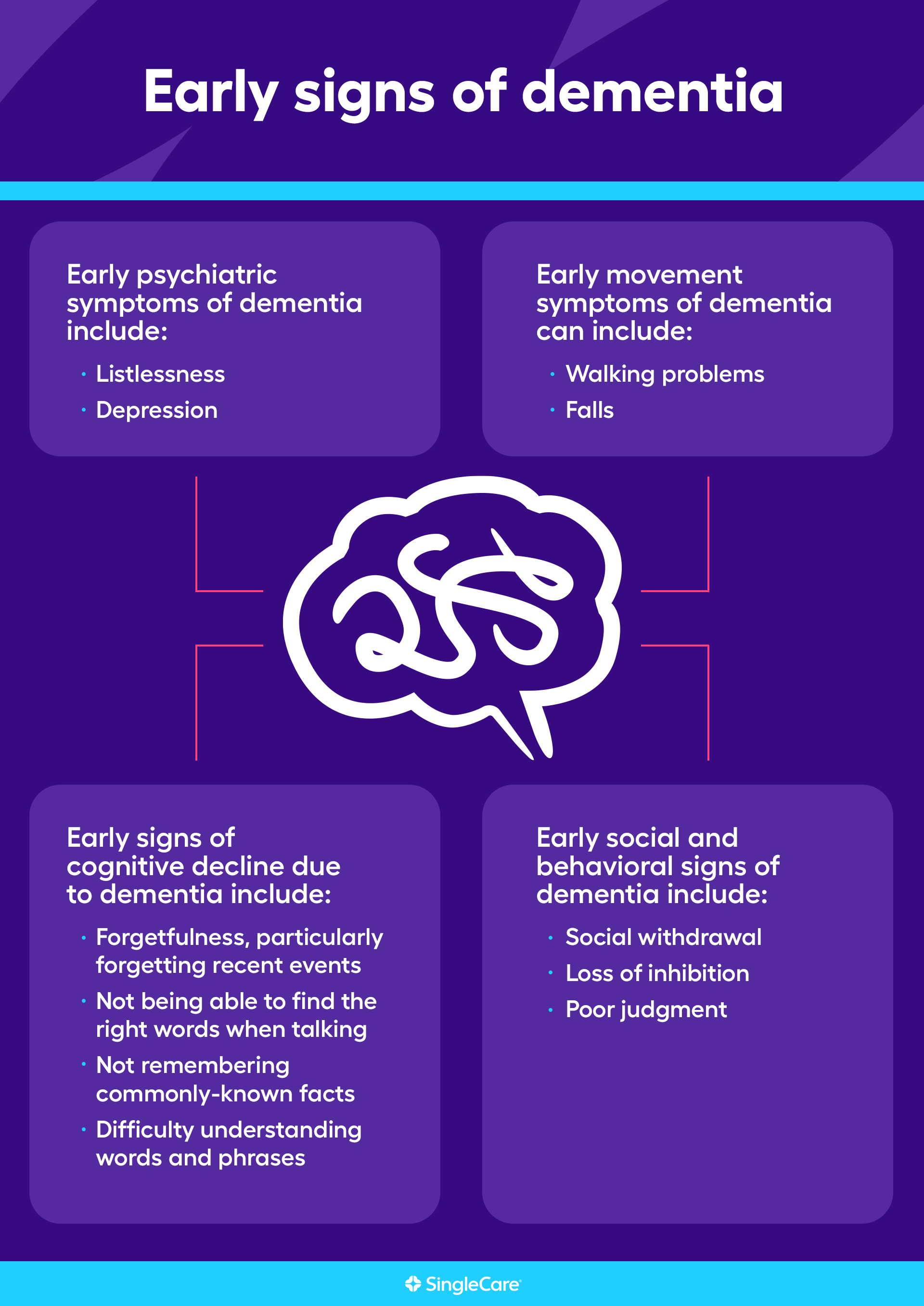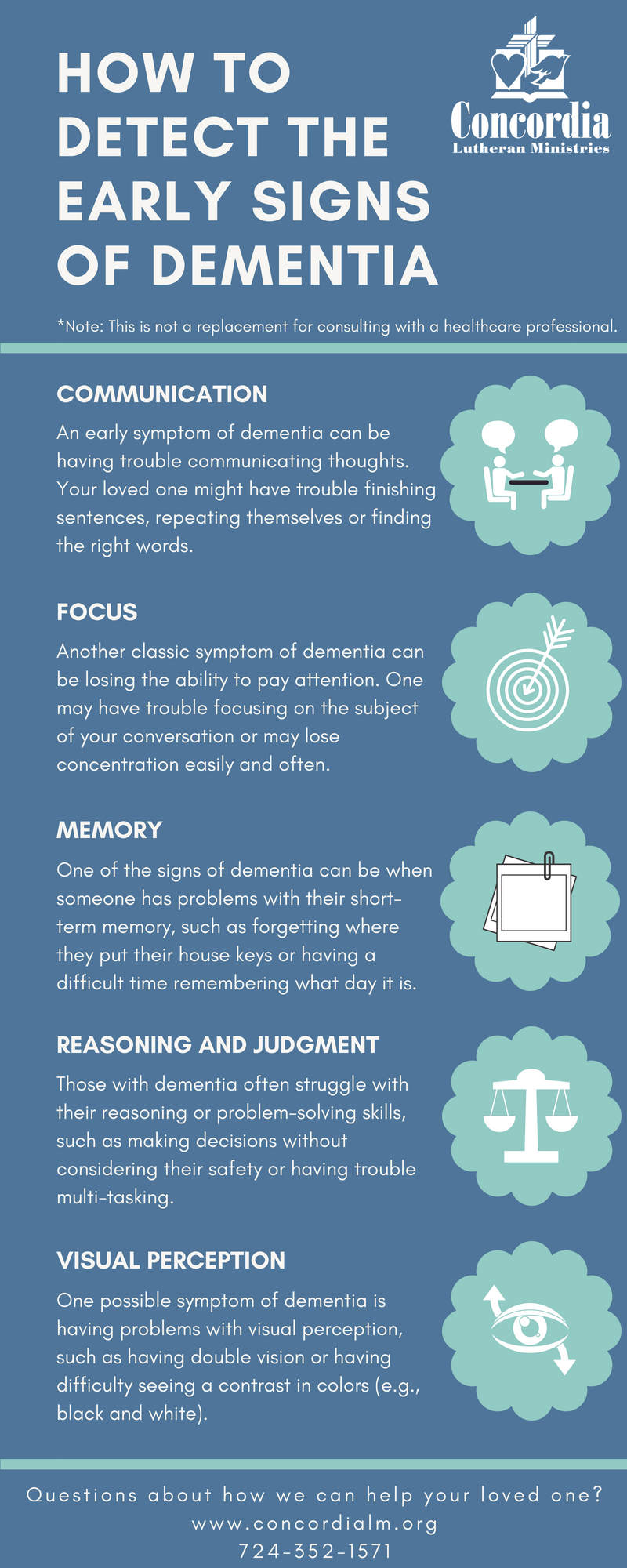Recognizing the Impact of Mental Deterioration on Daily Life and Caregiving
Mental deterioration impacts day-to-day live in profound means, affecting not simply those identified however likewise their caregivers. As cognitive decrease progresses, you might see modifications in communication and regular that difficulty both parties. Comprehending these changes is necessary for maintaining dignity and involvement. Exactly how do you adapt your caregiving techniques to support somebody traversing this complicated trip? The solutions may stun you as we discover the nuances of this experience.
The Stages of Mental Deterioration and Their Results on Day-to-day Live
As you browse the journey of dementia, comprehending its stages can substantially influence just how you take care of day-to-day life. Mental deterioration commonly progresses via three main phases: early, center, and late.
Throughout the center stage, you'll experience a lot more obvious cognitive decline. Daily tasks may come to be challenging, and preserving your freedom might need adjustments. Using tips and simplifying your atmosphere can aid.
In the late stage, people usually require substantial help with everyday tasks. Preparation for care becomes important, concentrating on convenience and lifestyle. By recognizing these stages, you're better equipped to react proactively, guaranteeing you or your loved one can navigate the difficulties with dignity and grace.

Modifications in Communication and Social Interaction
How do adjustments in communication impact your day-to-day interactions as mental deterioration advances? As mental deterioration developments, you might observe that simple conversations come to be challenging.
You might locate it less complicated to attach through these ways rather than relying exclusively on spoken language. Listening skills can additionally transform; you could find it more challenging to comply with conversations or keep in mind what was just said (Fall Risk). This can bring about misconceptions or feelings of isolation
Encouraging patience and producing a supportive setting can aid. Engaging in tasks that foster connection, like songs or art, can improve social communications. Keep in mind, preserving connections is still possible; it's almost adapting to brand-new methods of connecting.
Impact on Daily Routines and Activities
While navigating daily routines, you'll likely discover that jobs you once completed easily ended up being extra difficult as mental deterioration progresses. Straightforward tasks like food preparation, dressing, or also bathing might require even more time and initiative. You may find on your own failing to remember actions in acquainted regimens or having a hard time to remember where you positioned items. This can result in aggravation not just for you, yet likewise for those around you.
Planning your day can feel frustrating, making it more challenging to stick to a schedule. You may need pointers for visits or to take medicines. Adapting your atmosphere can assist; as an example, classifying items or making use of checklists can simplify jobs. Taking part in repetitive, structured tasks can also provide convenience and a feeling of success. Keep in mind, it's fine to request for assistance. Bordering yourself with supportive good friends or household can make handling these changes a little bit easier.
Emotional and Behavior Difficulties
Steering through everyday regimens can bring around not just practical challenges, but also emotional and behavioral ones. You might observe modifications in state of mind, such as boosted stress and anxiety or stress, which can originate from complication or trouble in finishing jobs. As you browse these moments, it is essential to acknowledge that your loved one might share their sensations via habits like agitation or withdrawal.
These emotional responses can be unpredictable and may develop without caution, leaving you both sensation overwhelmed. You may locate that acquainted settings or routines can help in reducing anxiety, yet keeping patience becomes substantial. It is important to validate their feelings, also if you don't totally recognize them.
The Function of Caregivers in Supporting Individuals With Dementia
As a caregiver, you play a necessary function in giving emotional support for individuals with dementia. Developing day-to-day care regimens can create a feeling of security and convenience, aiding to relieve their anxiousness. By comprehending their needs and using efficient techniques, you can significantly enhance their high quality of life.
Emotional Assistance Methods
When caring for a person with mental deterioration, recognizing the psychological landscape is essential for supplying efficient assistance. You'll typically find that patience and empathy go a lengthy way. Validate their sensations; if they reveal confusion or irritation, recognize it without rejecting their emotions. Straightforward motions, like holding their hand or preserving eye contact, can develop a complacency. Try to engage in tasks that they appreciate, as this can spark delight and link. Bear in mind to communicate clearly and gradually, utilizing a calm tone. Motivate expression via music or art, which can work as an effective electrical outlet. Ultimately, don't neglect to look after your own psychological requirements; seeking support for on your own can boost your capability to look after them.
Daily Treatment Routines
Developing day-to-day care regimens is important for giving security and comfort to people with mental deterioration, as these routines can help in reducing complication and anxiousness. You can begin by laying out a constant timetable for dishes, tasks, and rest. This predictability assists your loved one feel more protected and involved.
Include acquainted jobs, like folding washing or watering plants, which can stimulate favorable memories and foster a feeling of success. Usage visual hints, such as calendars or checklists, to guide them with the day.
Be flexible, though; adjust regimens as needed based upon their mood or energy degrees. Frontotemporal Dementia. Keep in mind, your perseverance and understanding are essential in steering their altering needs, guaranteeing they really feel sustained and valued throughout their every day life
Developing a Safe and Comfortable Living Atmosphere
Producing a view website risk-free and comfy living environment is crucial for people with dementia. You'll wish to make home safety and security alterations that minimize dangers and assure familiarity to offer a sense of convenience. By concentrating on these elements, you can help develop a room that sustains both safety and wellness.
Home Safety Modifications
As you article source navigate the challenges of mental deterioration, making home safety and security adjustments can significantly boost convenience and safety and security. Label essential locations, such as the restroom and cooking area, with clear signs to assist with orientation. These modifications not just advertise safety yet also motivate freedom, enabling your liked one to really feel more at ease in their atmosphere.
Comfort and Knowledge
After guaranteeing a secure environment with required alterations, promoting convenience and knowledge is essential for individuals with mental deterioration. Beginning by customizing their area. Use acquainted shades, decorations, and photographs that stimulate pleased memories. A favored covering or chair can provide a complacency. Keep a consistent routine to aid them really feel grounded and reduce anxiousness. Simple, familiar dishes can also produce a calming atmosphere. Keep paths clear and clutter-free to avoid confusion. Incorporate soft illumination, as brilliant lights can be disorienting. Think about adding comforting scents, like lavender, to promote leisure. Participating in familiar activities, such as listening to songs or horticulture, can boost their sense of belonging, making their living setting a true shelter.
Strategies for Effective Caregiving and Support
While steering the difficulties of mental deterioration care can really feel overwhelming, carrying out efficient approaches can greatly enhance both the caregiver's and the client's day-to-day experience. Begin by developing a routine; predictability helps in reducing anxiety for both you and your loved one. Usage clear, straightforward interaction-- straight questions and brief sentences can stop confusion.

Don't neglect to take care of Web Site on your own; schedule breaks and attach with support system. Sharing experiences with others in similar situations can give important understandings and psychological alleviation.
Last but not least, continue to be person and adaptable. Dementia can bring uncertain changes, so adjusting your strategy is necessary. By using these methods, you can foster a much more favorable setting that profits both you and your liked one.
Frequently Asked Questions

What Are the Different Kinds Of Dementia?
You'll find numerous types of dementia, including Alzheimer's, vascular dementia, Lewy body mental deterioration, and frontotemporal dementia. Each kind impacts memory and cognitive feature in different ways, so recognizing the differences is crucial for correct medical diagnosis and treatment.
How Can I Aid Someone With Early-Stage Dementia?
You can assist a person with early-stage mental deterioration by holding your horses, using assistance, and encouraging them to participate in activities they take pleasure in. Keeping routines regular and keeping open communication can additionally make a considerable difference in their life.
Are There Financial Resources Available for Dementia Care?
Yes, there are funds offered for mental deterioration treatment. You can discover entitlement program programs, not-for-profit companies, and insurance policy alternatives. It's additionally important to speak with regional agencies for particular sources tailored to your circumstance.
What Legal Considerations Should Caregivers Recognize?
As a caretaker, you must take into consideration power of attorney, health care proxies, and guardianship laws. It's important to comprehend the lawful civil liberties and duties you hold, ensuring your loved one gets proper care and security.
How Can I Handle Caregiver Tension?
You can manage caretaker anxiety by prioritizing self-care, seeking support from pals or groups, establishing sensible expectations, taking breaks, and practicing relaxation strategies. Bear in mind, your well-being matters simply as much as the individual you're taking care of.
Recognizing the Effect of Mental Deterioration on Daily Life and Caregiving.
As you browse the journey of dementia, recognizing its stages can markedly affect just how you handle day-to-day life.While navigating day-to-day routines, you'll likely observe that jobs you as soon as completed easily ended up being extra difficult as dementia progresses.Developing daily treatment routines is vital for offering stability and comfort to people with mental deterioration, as these routines can assist reduce complication and stress and anxiety.While navigating the challenges of mental deterioration care can really feel frustrating, applying effective strategies can significantly boost both the caregiver's and the person's day-to-day experience.